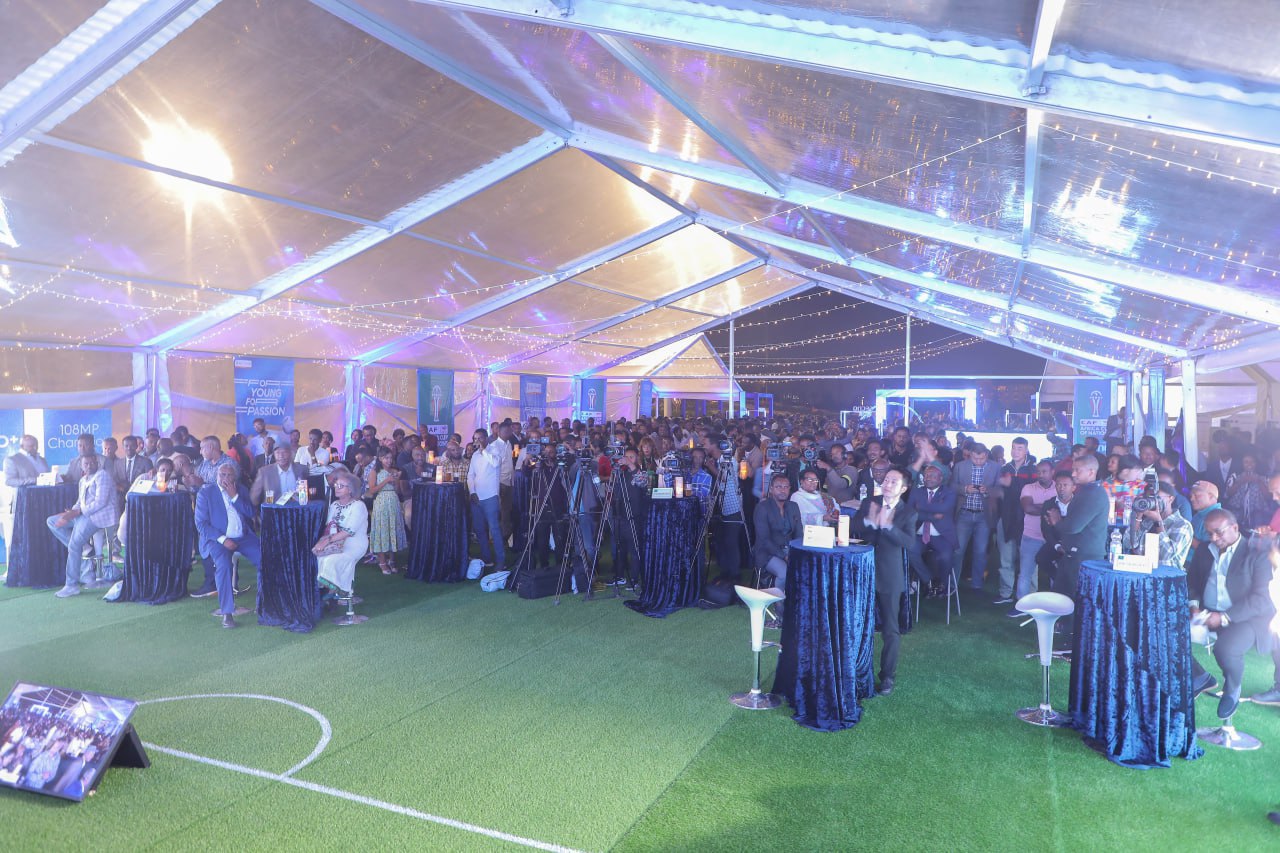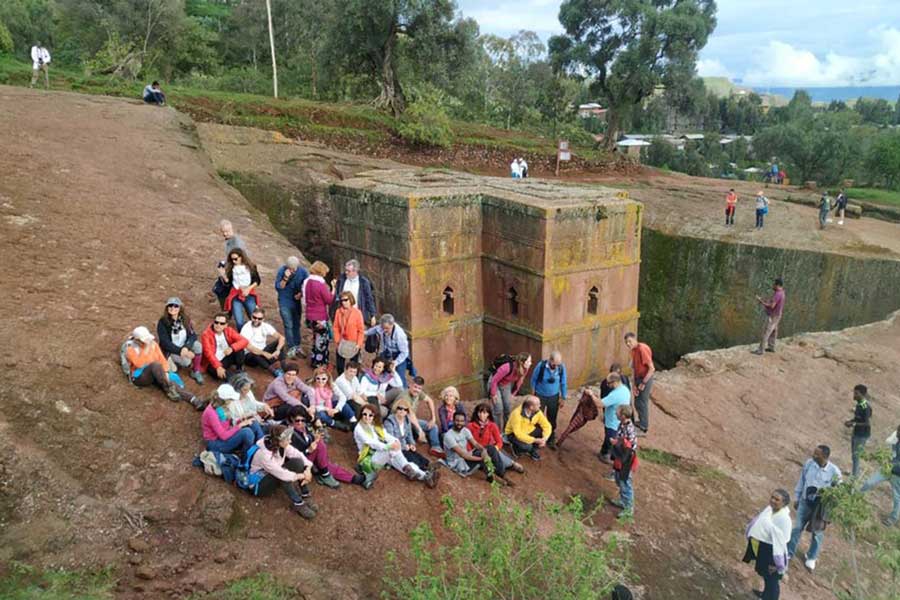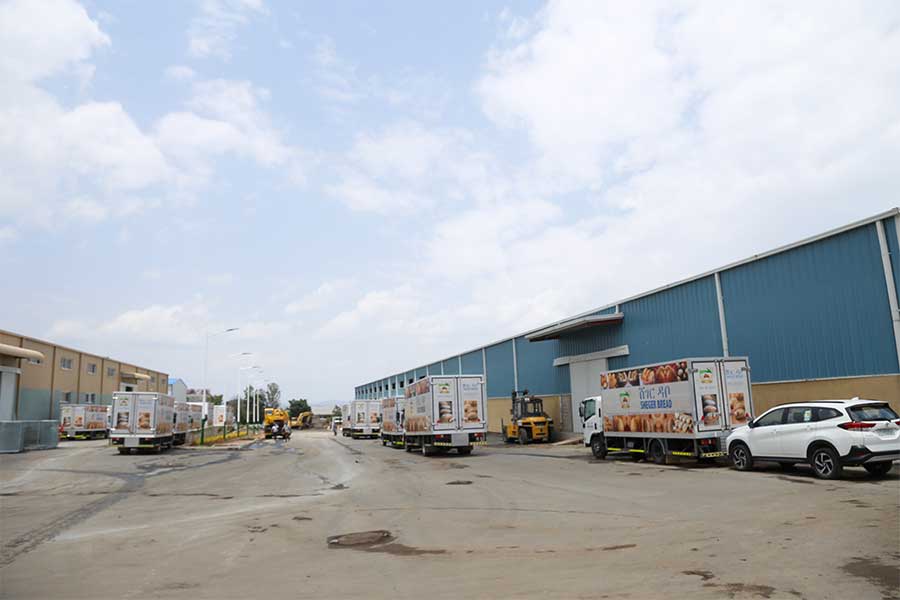
Every year, during the harvest season, a care package of barley grain makes its way from Adwa to Addis Abeba. The family of seven in Adwa, who send it to their kin in the capital, grow teff and wheat as well but barley is the favourite, roasted and packed to be served along with coffee when the family gets together. Every year without fail, though the amount may vary depending on their harvest, it would be delivered; a family tradition.
However, the year 2020 has been a disruptive and challenging one for the family and Ethiopia as a whole, to say the least.
This year, there no was packed barley that came to Addis. The family does not have anything to send; their harvest burned to cinders due to the warfare in Tigray Regional State. They have found themselves waiting on the sporadic food aid that has recently been allowed in though irregular conflict still goes on.
"We can't send them money," said a cousin who lives in the capital with his three sisters. "We're scared that this might be taken as support for the TPLF [Tigray People's Liberation Front]."
The TPLF, the region's former administration, engaged in open conflict with the federal government in early November in what could be described as the landmark event of the past year. The federal government had commenced what it deemed to be a "law enforcement operation" following an attack on the Northern Command of the National Defense Forces by forces loyal to the former regional administration, sending over the edge a country already reeling from multiple disasters.
High-ranking members of the TPLF now have a quarter-of-a-million-dollar bounty on their heads.
"We have to wait until they contact us," said the 30-year-old, referring to his family in Adwa. "My uncle is travelling four hours on foot to a mountainous area to get [phone] reception."
The federal government stated, three weeks following the start of the conflict, that control had been established, the law enforcement operation had come to an end, and only minor works were left. But telecom, water and electricity services, which had been cut off since early November, have yet to fully return to many parts of the Regional State.
Insecurity is the defining feature here as a no man's land has laid fertile ground for atrocities that have shocked the country.
The region witnessed the brutal killing of over 600 people in the rural town of Mai-Kadra, a vengeful spree that was allegedly orchestrated by a group identified as Samri, according to a preliminary report by the Human Rights Commission.
But security has been precarious and altogether missing for Ethiopians living in other parts of the country. Killings that have been taking place in the past year have ignited deep concerns over citizens' safety and the government's capabilities in safeguarding lives. Hundreds were lost in targeted massacres in places like West Wollega in Oromia Regional State, Bench Sheko in the South, Metekel in Beninshangul and recently in Konso, southwestern Ethiopia, to name a few.
Thus far, the government's response has been to imprison suspected orchestrators of the acts and pinning the killings on the TPLF as part of its strategic ploy to destabilise the country. But whoever may be behind the acts, the calls for international and independent investigations to take place have been resounding from all corners.
The calls for humanitarian access and independent investigation were the grounds for the postponement of 90 million euros in aid by the European Union. The aid embargo would be the second in the past year for the country. The first followed another monumental moment, the first filling of the Grand Ethiopian Renaissance Dam (GERD).
The United States paused close to 130 million dollars of funding following the country’s ''unilateral decision'' to fill the Dam. The country went ahead nonetheless, and in mid-July conducted the first filling of the Dam, which began construction nearly a decade ago. The filling of 4.9 billion cubic metres of water was done to allow the country to begin using two turbines to generate electricity this year.
The announcement was celebrated across the country in a rare joyful moment for the previous year with the President stating the country is "translating dreams into reality." Although negotiations between Ethiopia, Sudan and Egypt, the upper-riparian states of the Nile River, are currently at a standstill following multiple failed attempts to reach an agreement. The government maintains that Ethiopia is open for discussionis, but it emphasises sovereignty, another recurring theme for the country throughout the past year.
The family in Adwa and their relatives in Addis were sending each other messages of condolence long before the war broke out, according to this family member who chose to remain anonymous for fear of reprisal. Like many others, they had long since guessed where the country was heading as tensions escalated between the now removed TPLF faction and the federal government.
Indeed, one major incident in the country in the past year and a reason he cites as a turning point was the postponement of elections.
Intended to take place in August last year initially, the election was postponed by the National Election Board of Ethiopia, much to the disapproval of the TPLF.
The reason for the postponement was the catastrophe that took the country and the whole world by storm this year: the Novel Coronavirus (COVID-19) pandemic. The Board stated that it would be difficult to carry out its responsibilities considering the safety precautions that were put in place to control the pandemic's spread in March. It explained that work like voter registration and the recruitment and training of electoral staff, which was to involve over 100,000 poll workers, would be impossible in line with the ban on public gatherings.
Despite strong dissent from the TPLF, the election postponement was approved by the parliament.
The Board recently announced the new date for the election would be June 5, 2021, as precautionary steps against COVID-19 have faded into the background.
The pandemic is surging now more than ever with over 124,000 cases recorded in the country since it first appeared in mid-March of last year.
Perhaps no one has seen the pandemic's trajectory up close like health professionals, frontline responders in the battle that is being waged to this day in treatment centres across the country.
While contact tracing was initially given high importance in the pandemic’s early days, the focus has since shifted to taking care of those who tested positive.
Even so, as the country’s universities and halls turned into quarantine, isolation and treatment centres, capacity wore thin. A state of emergency that had mandated strict observance of face masks and limits on public transportation was lifted, and the public vigilance against the virus slowly but surely waned.
"We looked like astronauts in space when it first started with all the gear we had," said Tariku Hussen (MD), describing the multiple layers of personal protective equipment (PPE) health workers wore at the beginning of the pandemic.
"But slowly, the amount and standard of protective equipment we were using started to diminish," he said.
He was one of the few stationed at Bole International Airport, an entry point where travelers passed through a temperature screening. Alongside health workers who had experience in the Ebola outbreak, Tariku and his colleagues manned the gates when so little was known about COVID-19.
A lot has changed since then, with COVID-19 test centres proliferating in the country. Quarantine and isolation centres have been closed with only treatment centres serving the seriously ill. Schools, which had been closed for the majority of the year, have also recently been reopened.
For health workers like Tariku, it was not just the constant vulnerability to the virus but the stigma that came with being a health worker that made life difficult in the past year.
"Simple things like getting my hair cut or taking a taxi was tough at the time," said Tariku. “People didn’t want to come near you if they knew you were a health worker. I have colleagues who have had to leave their rented homes, because their landlords did not want them there anymore."
And though the attitude is lax in the community, with even face masks being cast to the wind, the reality is quite different at the treatment centres. Bole Chefe treatment centre, where Tariku currently works, is designated for maternal and child care and is one of the few non-critical care centres still working.
Here all 40-plus beds are at capacity, and when patients pass the mild threshold, they are referred to other centres.
“Lately, we're being told that the centres are full when we write referrals,” he said.
After considering the economic impacts of the pandemic, the country’s biggest-ever budget was tabled to parliament for approval at 470 billion Br, 83 billion Br more than the year before. The country, which already has an outstanding 16.7 billion dollars in external debt, planned to tackle an additional 100 billion Br. The rest of the funding is to come through the collection of domestic tax revenues and other sources.
As if armed conflict and a deadly pandemic were not enough, the country has also seen its fair share of natural disasters over the past year.
Since April, floods have ravaged many a region, destroying livelihoods and at times taking lives. Although the weather conditions responsible for these floods were unusual, the disaster was predicted and announced ahead of time. Preparation for it, however, was lacking.
The floods have displaced thousands, forcing them to seek shelter in neighbouring areas and villages. In Afar Regional State, some had to be airlifted out by helicopters, as the water engulfed them without warning.
Many schools, closed because of the pandemic at the time, were turned into temporary shelters. Aid organisations and government bodies sent much-needed help, but it was not enough as people had abandoned all they owned to save their own lives. Running water, electricity and cooking utensils were unavailable. Most flood victims have yet to get back to their homes, and there's no saying how long it will take to replace what they have lost.
These natural disasters have spiked the number of internally displaced people in the country, with a recent estimate by the International Organisation for Migration standing at more than 1.8 million.
Desert locust invasions were another of the unwelcome surprises that 2020 had to offer. In numbers that have not been seen in over 25 years in the nation, the locusts swarmed on farmland and field all over the country. The plague of biblical proportions made its way to the Horn of Africa from the Arabian Peninsula, where war-torn Yemen had been too preoccupied to carry out its habitual extermination of locust eggs.
Widespread responses from the Food & Agriculture Organisation and the Desert Locust Control Organisation for Eastern Africa and the government tried to minimise the damage. Farmers and even soldiers were mobilised to chase away the pests using traditional methods like smoke and noise.
Hundreds of thousands of litres of pesticides, the adverse effects of which remain to be seen, were sprayed to kill the locust and save the farmlands. Support also came from Israel's government, which donated drones and sent a locust-fighting task force to assist the efforts.
UN agencies monitoring the situation state that immature swarms are still forming in eastern Ethiopia. Intensive survey and control operations are heavily required by the Ethiopian government, adding to a plateful of national and international fiascos to address.
Another incident in a series of events that have shaped the country's social and economic landscape this year has been the death of Afan Oromo music singer Hachalu Hundessa. Three days of protests, which resulted in over 100 people's deaths and untold property damage, took place in the capital following his murder. The perpetrators have yet to be identified. Internet connectivity was cut nationwide for two weeks following the day of his death.
Protestors clambered in from outside the city, destroyed property and clashed with residents. A recent investigation by the Ethiopian Human Rights Commission states that many were killed in a gruesome manner during this time, some being dragged out of their homes. Here, like in other instances across the country, the government's ability to protect its citizens had come into question yet again. According to the same investigation, while there were varying police protection levels in some areas, others have been left to fend for themselves. Many reported that the police looked on as the attacks were taking place.
Despite the multitude of problems and challenges faced in the past year, much is planned for the future. This is evident, as the government recently approved a 10-Year Perspective Plan termed “Ethiopia: a Beacon of African Prosperity”. In this towering plan, the government plans to achieve 10.2pc economic growth annually over the next decade. The details of how this growth is to be achieved have yet to be unveiled.
The past year's events will undoubtedly follow us into this one, but to what extent remains to be seen.
PUBLISHED ON
Jan 02,2021 [ VOL
21 , NO
1079]

Advertorials | Jan 22,2024

Agenda | Nov 28,2020

Radar | Nov 09,2019

Photo Gallery | Jan 05,2021

Sunday with Eden | Mar 12,2022

Advertorials | Jul 31,2023

Fineline | Jun 14,2020

My Opinion | Sep 18,2021

Radar | Oct 31,2020

Radar | Aug 10,2019

Dec 22 , 2024 . By TIZITA SHEWAFERAW
Charged with transforming colossal state-owned enterprises into modern and competitiv...

Aug 18 , 2024 . By AKSAH ITALO
Although predictable Yonas Zerihun's job in the ride-hailing service is not immune to...

Jul 28 , 2024 . By TIZITA SHEWAFERAW
Unhabitual, perhaps too many, Samuel Gebreyohannes, 38, used to occasionally enjoy a couple of beers at breakfast. However, he recently swit...

Jul 13 , 2024 . By AKSAH ITALO
Investors who rely on tractors, trucks, and field vehicles for commuting, transporting commodities, and f...

Jun 28 , 2025
Meseret Damtie, the assertive auditor general, has never been shy about naming names...

Jun 21 , 2025
A well-worn adage says, “Budget is not destiny, but it is direction.” Examining t...

Jun 14 , 2025
Yet again, the Horn of Africa is bracing for trouble. A region already frayed by wars...

Jun 7 , 2025
Few promises shine brighter in Addis Abeba than the pledge of a roof for every family...